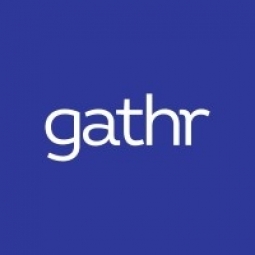Download PDF
Fortune 100 telecommunications company seamlessly migrates from Teradata to Amazon Redshift
Technology Category
- Analytics & Modeling - Real Time Analytics
- Infrastructure as a Service (IaaS) - Cloud Computing
- Infrastructure as a Service (IaaS) - Cloud Storage Services
- Platform as a Service (PaaS) - Data Management Platforms
Applicable Industries
- Telecommunications
Applicable Functions
- Business Operation
Services
- Cloud Planning, Design & Implementation Services
- Data Science Services
- System Integration
The Challenge
The customer, a US-based Fortune 100 broadband connectivity company and cable operator serving more than 30 million customers, was facing several technical and business challenges with their existing data workflow. They received data from multiple sources that was fed into an SFTP server. After ETL was performed, the data was read by an Informatica workload and persisted to their Teradata data warehouse. Business analysts then accessed this data and ran queries to gather insights. The client wanted to make a strategic shift to the cloud to enhance scalability, reduce costs, improve query performance, realize a unified view, simplify management, seamlessly integrate with other cloud-native services, and automate workflows for CI/CD.
About The Customer
The customer is a US-based Fortune 100 broadband connectivity company and cable operator. They serve more than 30 million customers across the country. In their existing setup, they received data from multiple sources that was fed into an SFTP server. Once ETL was performed, the data was read by an Informatica workload and persisted to their Teradata data warehouse. Business analysts then accessed this data and ran queries to gather insights. However, this workflow was posing several technical and business challenges, prompting the client to seek a strategic shift to the cloud.
The Solution
To meet the customer’s business requirements, an end-to-end data flow solution was built leveraging key components such as Amazon Redshift, Amazon S3, Amazon Athena/EMR/Redshift, and Gathr. Gathr was used to configure ETL flows, ingest data, perform full load, incremental load, and CDC from Teradata to Redshift, transform and persist data feeds to Amazon S3, enable one-time migration by directly loading Teradata tables into Amazon Redshift, validate data post migration, provide a unified view of the complete workflow, set up CI/CD for upgrading ETL flows and moving them seamlessly from one environment to another, and schedule and trigger the data flow process at a pre-configured frequency.
Operational Impact
Quantitative Benefit
Related Case Studies.

Case Study
Vodafone Hosted On AWS
Vodafone found that traffic for the applications peak during the four-month period when the international cricket season is at its height in Australia. During the 2011/2012 cricket season, 700,000 consumers downloaded the Cricket Live Australia application. Vodafone needed to be able to meet customer demand, but didn’t want to invest in additional resources that would be underutilized during cricket’s off-season.

Case Study
SKT, Construction of Smart Office Environment
SK T-Tower is the headquarters of SK Telecom. Inside the building, different types of mobile devices, such as laptops, smartphones and tablets, are in use, and with the increase in WLAN traffic and the use of quality multimedia data, the volume of wireless data sees an explosive growth. Users want limitless Internet access in various places in addition to designated areas.









